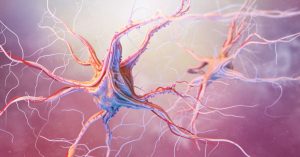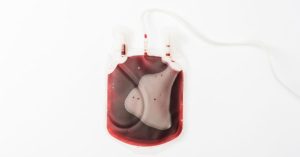
Access to Care Barriers in Lyme Disease Treatment
Findings from a study by Johnson and Maloney, “Access to Care in Lyme Disease: Clinician Barriers to Providing Care,” explain why doctors treating Lyme disease often face professional, financial, and regulatory obstacles.¹ These pressures shape real-world treatment decisions and contribute to the limits on antibiotics for Lyme disease experienced by both physicians and patients.
“The primary goal of this study was to identify the challenges faced by clinicians who provide care for patients with PLD/CLD,” the authors wrote, and in doing so, to identify potential solutions that may assist with recruiting and retaining clinicians willing to treat Lyme disease. These barriers are compounded by widespread Lyme disease misconceptions that discourage physicians from providing extended care.
The authors surveyed 155 clinicians from 30 states in the United States who treat patients with post-Lyme disease/chronic Lyme disease (PLD/CLD).
Clinicians reported that barriers to providing care included complexity of care (79%), cognitive impairment of patients (57%), and frequent calls from these patients between scheduled appointments (49%).
Complexity of Care
“Lyme disease is the hardest diagnosis I treat as each patient responds so differently to therapy. It is hard to know where to start with each one, what will work, and what will make them worse. Some patients never seem to get better no matter what I do, while it is gratifying to see others improve.”
“I think the most difficult problem is the cost of providing this amount of complex care on a cash basis. To really review hundreds of records, spend time with the patient, and do a proper workup takes hours. I’d like to see more support for patients and clinicians who choose to help this set of patients.”
Exclusion from Insurance Networks
“I knew that at some point I would be forced to stop taking insurance and move forward on a cash-pay-only basis. Looking at the numbers, taking commercial insurance for these patients just doesn’t make sense. I believe the main issue that causes many of these patients to be without access to care is the amount they need to spend on their practitioners plus the out-of-pocket cost for out-of-network testing, labs, and treatment. For most of these patients, it ranges from $10,000 to $20,000 per year. It is a heavy burden.”
Stigmatized or Disrespected by Colleagues
“Three-quarters of respondents report having been stigmatized or treated disrespectfully by professional colleagues because they treat Lyme disease,” wrote the authors.
Three out of four physicians treating patients with post-Lyme disease/chronic Lyme disease reported being stigmatized or treated disrespectfully by colleagues. This was demonstrated by a lack of professional support from colleagues, opposition to treatment from some physician organizations, limited ability to share office and practice burdens, and exclusion from participating in insurance networks.
“While my patients are generally very supportive, some of my colleagues have stopped speaking to me, and I worry about the medico-legal repercussions of what I do.”
Physicians Reprimanded by Regulatory Organizations
“Nearly four in ten physicians (39%) reported having been reported to a medical board, an insurer, or subjected to a hospital-based quality improvement inquiry,” wrote the authors. These findings help explain why doctors treating Lyme disease often limit or avoid care despite growing patient demand.
Implications for Patient Care
As the number of Lyme disease cases continues to rise, the demand for clinicians willing to treat post-Lyme disease and chronic Lyme disease will continue to increase. To recruit and retain these clinicians, the authors recommend improving clinician education regarding PLD/CLD, reducing stigma and regulatory burdens, and promoting insurance reimbursement models that reflect the complexity and time commitment required to provide appropriate care.
Reference
- Healthcare (Basel). Johnson LB, Maloney EL. Access to Care in Lyme Disease: Clinician Barriers to Providing Care. 2022;10(10). doi:10.3390/healthcare10101882



Thank you for covering this!
I have been experiencing many of the symptoms of Lyme disease and have been tested by a neurologist for every conceivable neuromuscular disorder for the last year. He and my primary care doctor have both declined to order testing for Lyme disease. I have bilateral facial numbness, PVCs, shortness of breath, tingling in my extremities, intermittent joint and muscle pain, dizziness, sleep disturbances, and extreme fatigue . I am an avid golfer and found a tick carcass on my clothes last year. In addition, I had a short term unexplained fever on two occasions in the last couple of years. I’m uncertain as to what to do next. Any advice would be greatly appreciated.
I have colleagues who disagree over whether to consider Lyme disease. I have Lyme disease patients with similar presentations despite extensive evaluations for other illnesses.
Dr. Cameron,
As a Lyme Disease patient, I wanted to thank you for acknowledging that we actually exist and not just sweeping us under the rug as a psychiatric patient since many of our early symptoms aside from the flu-like symptoms, joint pain, and chronic fatigue actually manifest as depression or anxiety. I was misdiagnosed for 10 years because I work in the Medical Field and it was written off as PTSD from the things we see. Thank you for seeing us, respecting us, being willing to hear us and treating us. Sending you much love and respect. Stay strong in the face of adversity that you may face from your fellows. You are saving lives out there.
Thanks for reaching out and sharing you energy.
Hi Danielle, Similar thing happened to me based off my college degree, type of work, and fact that I am obese. It was assumed I am just a hypochondriac with depression. I’m so sorry that you were misdiagnosed too. I wish you great health!
Mark,
Get the Lyme tests even if your GP won’t order it. Find someone who will order it for you. I waited until I was so sick with symptoms before I found someone to order the tests. I have now had Lyme 17 years and wish a doctor would have believed me in 2007. Waiting has disabled me. I knew something was severely wrong. I spent so much money on co-pays, etc. But getting them to listen was bad. They never did. I had to believe me. Believe yourself, Mark. I wish you great health!
Doctors lie or are uneducated. I have Lyme and everyone around me is feeling same symptoms
When I first got Lyme Disease I was prescribed an antibiotic for a month (after some education by me of my family doctor). After that I had no more help except to be told to go to a Lyme specialist, go to the USA. It was not a cure because the treatment came rather late. I was infected in France while I was visiting my daughter who lives there, so I didn’t get the bullseye rash. I got an oval expanding rash which the family doctors here had never heard of.
Doctors do not treat Lyme disease, because they do not understand the illness and
have difficulties diagnosing the Lyme disease. Plus even properly diagnosed, plenty of doctors do not know how to treat the patient, even making efforts to cure the diseased patient. Doctors rely way too much on hard evidence and blood tests. Lyme disease is treated based on symptoms, not tests, because tests are not reliable and accurate most of the time. Lyme disease is easy treatable in the first stage of the infection, when it is really difficult to diagnose or identify the pathogen causing the infection. Plenty of infected folks are not diagnosed or not treated correctly, because of lack of knowledge or expertise.
Currently battling Lyme disease head on. I have had it for a long time and it went undiagnosed. I was a happy go lucky kid, then all of a sudden I had severe anxiety, mood swings, depression, extreme fatigue, achy body, late puberty…I even ended up with lymphoma! Now at the age of 28 I found out I have had chronic lymes! I always thought something was just inheritably wrong with me. I am BLESSED I found my holistic health practitioner. She is helping me heal. Lyme ruined my hormones, clogged my detox pathways, and left me weakened. It is such a hard road, I get down sometimes, but I know there is light at the end of the tunnel. I could have continued to suffer through life. NO ONE deserves that!
The insurance company executives deserve it. Yes some do deserve it. Nobody can understand this until it happens to them. Then they get a rough introduction to understanding it.
Exactly
Sudden onset anxiety … dismissed from ER despite fever and incoherence. 2 weeks later? A full disseminated rash and seizures. 1 course of antibiotics? Blood work was negative after ten days but for some reason physicians think that means “cured”. Lymphoma appeared 4 years after the initial tick bite and 1 year after further monitoring and intermittent antibiotics were denied. The physicians decided it was all mental…. Until my lymph’s hit 60 percent and I was incontinent and having difficulty walking from nerve inflammation. All my symptoms are now blamed on CLL and aging instead of intracellular parasites. It would be easier to have syphilis or aides or be a drug addict in the US than someone with misdiagnosed Lyme.
I relate waiting for answers. 1st Lymes test was negative, 8 months later I received a positive test. Was unable to work and day to day was struggle every inch of way. Since herbal treatment life has greatly improved but still a challenge that changes in severity daily. Sending good thoughts and prayers during your journey living w Lyme
I tried LYMESTOP. It has helped. They are in Idaho and Wisconsin.
I live in Arizona. I went to the office in Onalaska, WI
I feel like I want to advocate for LYME patients and especially doctors.
Recently diagnosed with chronic Lyme due to symptomology (“migrating” nerve and muscle pain, anxiety) and low HNK1 while blood cells as well as low ALK liver enzyme. Diagnosing doc is a naturopath in Berkeley, CA.
I went to the emergency room .The doctor was very upset and shook his head a ND said I had Lyme disease..a round red circle and when you pressed on the skin around it.it looked like hundreds of things the size of a head of a needle were going up and down in the middle of the circle.Itook antibiotics for 2 weeks and he said I could have trouble with my knees in the furture.Eventualy I did and my new doctor said there is no Lyme disease IN western N. Y..SO I SUFFER.a doctor gave me zethromicine for a cough and my knees got better but Lime moves around and effects so many things.I wish the insurance people and doctors who lie and don’t care would get Lyme so they would know what people suffer.I finally see I have hit a brick wall so a I don’t go to doctors anymore.I pray and try different things but I am so tired after 12 years of this.
I know exactly how this feels. It’s so frustrating. I am obviously not alone.
I just happened to stumble upon this. I’m still trying to figure out whether my issue is Lyme or RA. I have a high Rheumatoid Factor, but have also had Lyme. The high RF was found not long after having been treated for Lyme, about 2 years ago. One doctor said to go on Methotrexate…I want for a second opinion, this Rheumatologist is just monitoring….and found I have a Vitamin D deficiency as well. I have been getting progressively worse, fatigue, pain, anxiety….has really hit an all time high. The Lyme tests keep coming back negative. I was only treated initially with two weeks of Doxy… Even though I told them that I still had symptoms, they refused to continue to treat. All of the symptoms I have, others have mentioned above. It is scary, and hard to know which direction to go in…
Dr. Cameron,
My son has chronic lyme disease. He was misdiagnosed for over 10 years. He has joint pain, trouble sleeping, gets upset for little things, and he has fatigue. I am his mother and have been supporting him for over 10 years. He is unemployable. I understand there is a medication available on in Europe that can help with this horrible disease. Can you please tell me the name of this medication? Thank you.
I am not aware to that medication. Sorry. All the best
My uncle (72 yrs old) with no psychiatric history was admitted to an ER a month ago. He is positive for IgG and IgM Lyme antibodies. He remains hospitalized after a short course of doxycycline, with the presumptive diagnosis of new onset schizophrenia?! The antipsychotics and other psychiatric medications are not helping. I truly believe he needs antibiotics not psychiatric medications. Where can we go for help?
I have now had Lyme for two years. At first it was thought I had a Brown Recluse spider bite, and was given a short course of prophylactic antibiotics. When I realized two months later I was getting what appeared to be RA symptoms, I went to my GP and demanded tests for rheumatoid factors and Lyme disease. Lyme came back as historical. I knew then the red meatball on my upper arm was not a spider bite. I had the normal course of CORRECT antibiotics then, but have still been plagued by Lyme flares, knees especially, but it was nerve issues also. The stabbing in the feet was especially unnerving, as it caused me to jerk my already hurting legs while sleeping. The nerve pain has all but subsided over the last year. I was wondering if anyone has noticed that Lyme seems to seek out all your previous injuries when it flares. For example, I broke my wrist in six places 55 years ago, and last flare, it hurt me for the first time ever. Many other previous injuries have reminded me of the times of their occurrence, much to my chagrin. I have noticed that my flares, at times, seem to be decreasing, sometimes in days, sometimes in intensity. I’m hoping that this means I am coming, albeit slowly, out of this nightmare. Is this a wasted wish?
I have often seen Lyme showing up first in areas that have previously been injured
Pending diagnosis, but it all fits. I had a tic removed two years ago and was given ten days of doxy. As I’m 58 and a hard charging defense contractor who spends most of the year overseas in one hell hole or another, I just figured it was my body’s wear and tear catching up with me. Noooo! Everything regarding pain and unexplained rashes, muscles, knees, etc., all fits perfectly.
Thank you for covering this. It will help me to be more selective when searching for a provider.
I’ve already been told via one email, where I was simply inquiring about the ELISA and western blot, that there’s no chance I have Lymes, CLD, or CIRS. Now how would they think that if I hadn’t even listed any symptoms.
Tragic! Thanks again for covering this and all the comments have been helpful as well.
It is easy to get lost